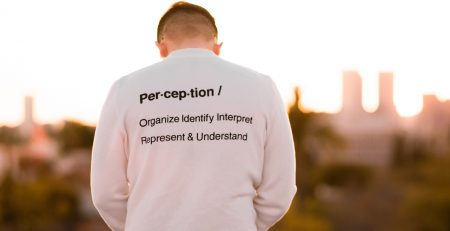The Secret to Unlocking Your Personal Brand
Are you looking for a career that gives you a sense fulfilment, purpose and satisfaction? Of course, who doesn’t! You see, having a strong Personal Brand is an essential component of managing your career, especially if you want to achieve success. But what’s the secret to unlocking your Personal Brand and leveraging off it for maximum results?
Before you can ‘brand’ yourself, you essentially need to understand what it is you are actually branding. I mean you can’t build your powerful brand without really knowing yourself.
For many people, getting their head around exactly who and what they are as a professional, can be a real challenge. They are acquainted with themselves but don’t truly know themselves or appreciate the full range of their capabilities.
When you take the time to really define who and what you are as a professional in your field, you become an authority on yourself and this is the key to unlocking your Personal Brand.
So, how do you become and authority on yourself?
Well, you need to figure out your Professional Identity first and foremost. Your Professional Identity is the foundation on which you build your Personal Brand and it consists of 7 major areas or as I like to call it The 7 Pillars of your Professional Identity.
PILLAR 1: DEFINE YOUR PROFESSIONAL LABEL

As people, we love to classify things. It makes it easier for us to get our head around something or somebody if it comes with a nice label.
Back in my days as an IT Recruitment Consultant, I noticed that many people really struggled to communicate their brand and articulate what it was they actually were.
This meant they left it up to me to try and guess and if I couldn’t figure out what to classify them as, I wouldn’t know where or how to place them in a role. And so, they ended up missing out on what could have been their dream job, all because they failed to properly label themselves.
To define your Professional Label, you need to decide what you want to call yourself. Be specific, start with something like, “I am a…”
Here are some examples:
- I am a Digital Marketer, specialising in SEO.
- I am a Visual Designer with expertise in luxury brands.
- I am a Finance and Banking Professional.
Don’t put yourself into a position where other people have to try and guess what you are, as you could potentially miss out on a lot of career opportunities.
A key strategy in controlling your brand is to label yourself before someone else mislabels you.
PILLAR 2: DEFINE WHAT YOU DO

Defining what it is your actually do, it a vital part of your Professional Identity and Personal Brand as it helps you understand the value you bring to an organisation.
There are two ways to look at this:
- What you do on a daily basis, i.e. what activities you fill your day or week up with.
- The outcomes these activities produce.
What you normally fill your day with is really a means to an end. You want to be able to figure out and articulate what that end looks like. Here’s an example to illustrate my point.
I was recently working with a client who was branding herself as a Digital Marketer. When I asked her what she did, she told me it was Facebook marketing, SEO, website copy, product and affiliate marketing etc.
However, after working together to define her Professional Identity, what we discovered was these activities were just a means to an end and what she really did was enable her client to grow their business and profit by connecting and engaging with their target audience using multiple, digital channels which included Social Media, Affiliate and Website Marketing.
Instead of focusing on what she filled her day with, she was now better able to articulate her brand and value by communicating to her clients exactly what outcomes she enabled them to achieve.
So, when defining what it is that you do, instead of telling people what you fill your day with, focus instead on the outcomes you produce and what problems and challenges can you help an organisation to overcome.
PILLAR 3: IDENTIFY YOUR AREA OF SPECIALISATION

Another secret to unlocking your Personal Brand is to pinpoint where you have the greatest depth of skills, experience and knowledge. A strong Brand is one that focuses around a key area of specialisation.
The opposite of a specialist is the ‘generalist’, also known as the ‘Jack-of-all-Trades’ and that’s the hardest position to build a Personal Brand from.
If you don’t know what your area of specialisation is, consider what areas of your job or industry you are the most:
- Skilled, knowledgeable and experienced in
- Passionate about
Another technique to help you identify your area of specialisation is to start taking notice of what problems people typically bring to you to fix or what areas they come to you for specific advice on. Why do you think they come to you for this? Is it possible that they already see you as a specialist in this area?
A specialist is perceived to be a high value asset for an organisation, which is why they tend to command a much higher fee.
It’s much easier to build a brand around a core set of skills in a specific area than across all of your skills.
PILLAR 4: DEFINE YOUR CORE STRENGTHS AND SKILLS

Think of your core skills as the tools that enable you to become a specialist, to do what do you and solve the problems that make you valuable.
Now it’s one thing to know exactly what your skills are but it is another to be able to clearly articulate it to others. I’ve seen too many people miss out on great roles because they simply could not communicate their strengths and skills. Someone who has a strong Personal Brand is someone who knows exactly what they bring to the table.
When it comes to defining your skills, make sure you don’t fall into the fast food skills trap. Simply put, the fast food skills are the same skills you need to work in fast food restaurant. These include:
The ability to prioritise, work autonomously or in a team, think outside the box, multi-task, communicate and solve problems.
Whilst these skills are vital, they are also over-used generic clichés that add nothing to your brand. Instead you need to focus on your relevant industry skills. For example, if you are a Digital Marketer, your core skills would be something along the lines of:
SEO, organic growth and content marketing, acquisition strategies to increase web traffic, user journey optimisation, optimize content for search on web, mobile, social and email platforms, traffic analysis etc…
PILLAR 5: DEFINING THE VALUE THAT YOU BRING

Everyone is valuable, though many people are lost when it comes to defining and communicating exactly what makes them valuable to an organisation.
To help you determine your value, think about what you enable the business to achieve, the gaps you can fill and the challenges you can help them overcome as a result of your skills, experience and expertise. Now promote yourself as the ‘filler’ of those gaps. Additionally, don’t just tell people what you do, tell people what you can do for them.
By focusing on the outcomes of what your skills and experience produces, you can position yourself as a person of value to an organisation.
PILLAR 6: DEFINING YOUR CAREER GOAL

As you begin to define your Professional Identity, a lot of things will become clearer and, in many cases, give you the clarity needed to define your specific career goals. It’s like saying, here’s my brand and this is where I am going to go with it.
Your Personal Brand is the vehicle that is going to help you achieve your career goals a lot quicker. However, you need to make sure that your brand (what you say about yourself and how you position yourself) is in alignment with your goals.
You need to brand yourself not just for where you are now about also where you want to be in the future.
PILLAR 7: DECIDING HOW YOU WANT TO BE PERCEIVED

Your Personal Brand is not always what you say it is but often what people perceive you to be. Personal Branding is really about managing that perception.
Perceptions can stunt a career and prevent people from progressing and in many cases, miss out on amazing career opportunities. This is because their branding message is not in alignment with the perceptions people have of them. In fact, people are often prevented from moving forwards in a company because their brand message, goals and perception are misaligned.
Every action, interaction and word creates a perception in the minds of your work colleagues and industry, which does one of two things; either enhances your Personal Brand or detracts from it.
A person with a strong brand is always conscious of how their actions, interactions and verbal and written communications affect their brand in terms of people’s perceptions of them.
When it comes to defining your brand, you need to decide how you want to be perceived by your managers, peers, those that report to you as well as people in your wider circle or industry, making sure that there is consistency in perceptions as this ensures that you are ‘on brand’.
To help you achieve your career goals or get that promotion, it’s always a good idea to gain an understanding of how someone in the position you want to be in, is or needs to be perceived.
Remember, always be conscious of the perception you want people to have of you versus the one that people actually have of you.
Don’t just be acquainted with your professional self, become an authority on YOU.
If you’re looking to build a career that’s truly epic, then your Personal Brand is the vehicle that can help you achieve this.
In this article I have described just one the key aspects of the John Maltby Strategy – Defining your Professional Identity. If you would like to see what others steps are involved in mastering your career, you can find out more information by clicking here.








Leave a Reply